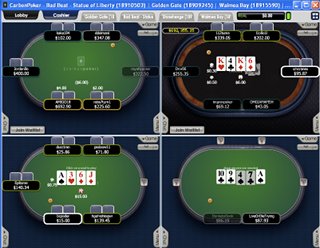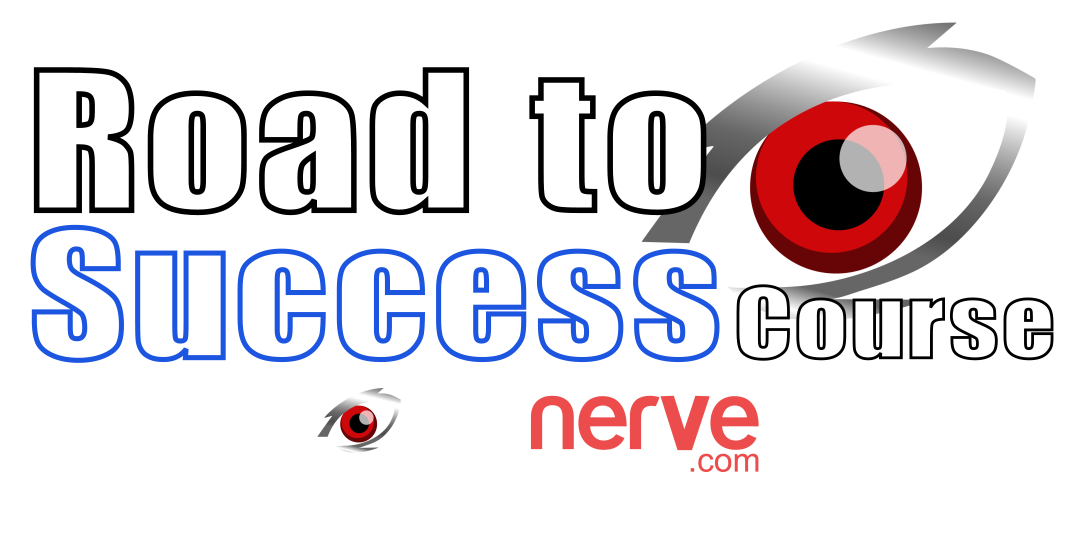What Are Mtts In Poker
Posted : admin On 4/12/2022- Building up solid fundamentals and adopting some advanced strategies will be enough to make you a winner in lower stakes games and many online MTTs. Traits of a Professional Poker Player. Playing poker for a living isn’t just about learning strategies and math behind the game.
- Facing A Check Min Raise lespaul99 replied 1 day, 20 hours ago 3 Members. A vibrant & encouraging poker learning community.
- Tournament Poker Coaching. No Limit holdem tournaments are getting tougher to maintain high ROI every year. Our 1 to 1 tournament poker coaching keeps you ahead of the game with an easy to understand process, helping you become a long term winner.
Over the past couple of years, there has been an explosion in regard to the Game Theory Optimal or ‘GTO’ approach to poker. If you are reading this post you probably have some idea of what this actually means. It’s a complex subject but ‘playing GTO poker’ basically means playing in a way that means you cannot be exploited by your opponents whatever style of play they adopt. Every base is covered, no theoretical stone is left unturned.

Pure usage of GTO poker strategy by any individual will mean that essentially you’re a perfect poker player. Which is perhaps why is not the best strategy to adopt in some poker formats. Especially in the crazy, variance ridden of world MTTs.
GTO and tournaments
A significant amount of high stakes and mistakes MTT players now look to replicate GTO in order to improve their MTT game. Many have turned to the poker GTO solver PIO solver, which has become one of the most popular GTO poker solvers in the world (however you choose to pronounce it). Until a few years ago pretty much all MTT players played what was called a purely exploitative style of play. This essentially means that you play the player and situation, whatever the math says. Of course, this strategy is extremely difficult to perfect as you need to adapt your play to every single player, while six to twelve tabling in some cases for online players.
In the early stages of the tournament identify the weak players at your. MTTs are constantly evolving. New trends emerge, old tricks stop working as the fields learn to adjust, and so on. But while cash games and sit-and-goes are getting closer and closer to being solved by software and the like, MTTs remain the only format where exploitative play is where the money is.
This has been the issue for many players, especially those in the high stakes arena trying to embrace the GTO poker approach that has been filtering down from the high stakes cash games online. Rather than playing the player, you play an overall range and strategy that is static and cannot be adjusted. However because this GTO strategy is so good it doesn’t matter that you don’t adapt or deviate from it because it cannot be beaten, if applied properly.
Misapplication of GTO in MTTs
The last part of that last sentence is the crucial one to consider when thinking about GTO and MTTs, ‘if applied properly’. The problem with humans is that are not really that smart compared to AI and robot counterparts. Also, they have lots of emotional and mental fallbacks that disallow them from applying perfect game theory for any significant amount of time. In reality, it’s impossible for humans to apply GTO poker properly at all times, so they have to make do with getting as near they can to a perfectly balanced poker strategy. This means that most players have one foot in and one out of the GTO world. Which can lead to many errors.

Statements like this might enter a players head when getting to the river in a certain hand:
GTO says check (I think) but it can’t be that bad to shove all in right?
GTO says check but I know this guy will fold too much so I am just going to jam all in, probably the right thing to do.
GTO quite likes a mix of strategies here, so it doesn’t really matter what I do here with this one, whatever!
The problem with GTO is that is too complicated for our little human brains! So we just try to do the best with it we can, which again leads to problems in regard to proper strategy.

Basically nobody plays proper GTO in MTTs, so you shouldn’t either.
Another reason to not adopt a wholly GTO strategy in most formats of poker, especially the wild west of tournaments is the fact that basically none of your opponents will be adopting a rounded GTO strategy, even if they think they are!
Players will nearly always switch to an exploitative style when playing versus fish/weaker players or overly aggressive or passive players. Which means that if you apply a purely GTO approach yourself then you will likely find yourself misapplying theory because your opponents will not react the way they are supposed to.
Take this example:
GTO theory says that you must three-barrel bluff a certain combination of hands. So you do, and the fish calls with the third pair anyway. And they will basically every time, because they don’t care about your precious GTO poker strategy.
GTO strategy only works if your opponent is playing to the same rigid rules that you are, for instance, that should always fold a certain hand in a certain scenario, which of course, in reality, will not happen in many instances. Playing GTO poker does not account for emotion, tilt or the fact that some players just do not like to fold much.
But that doesn’t mean that GTO isn’t an extremely valuable tool in MTTs.
What Are Mtts In Poker Games
Despite the above paragraph, this blogpost is no way suggesting that GTO poker should be avoided in MTTs. Simply attempting to become anywhere near as good as GTO will make you a much better player, in the long run, as if you’re really studying hard and trying to adopt a better strategy then you likely will.
The main thing to remember with GTO and its relation to a lot of poker games/situations is that it’s good to have a GTO style baseline to work from but you must adapt from it whenever the situation dictates that you should.
And because MTTs are a game of constantly shifting stack sizes, dynamics and factors then having a rigid if fantastic GTO poker strategy will be very problematic for most players. As in trying to play perfectly they instead end up having misapplied and confused strategies versus opponents that they know little to nothing about.

So in summary, the word to use when comes to MTTs and GTO is caution. Learning proper ranges and GTO strategies will no doubt improve your game but just don’t assume that because the math says your opponents will fold this hand or call another that they will!
In reality, it’s only when we get to high stakes MTTs and cash games that true GTO poker strategy can be applied, as both not just one player is actually adopting this extremely complex and diverse approach to the game of poker.
(After you read this post, you might want to check out my follow-up to it here.)
I tell a lot of people not to play large-field online MTTs for a living. I’ve always thought that the variance is just way too high for most professionals to trust their livelihood (and sanity) to large-field MTTs instead of cash, smaller-field MTTs, or STTs. But, admittedly, I’ve given this advice without any direct evidence to back it up. I’ve been meaning for a while to see what the numbers say, and this post will be a tentative first step.
Ideally, what I’d like to do is do a nice controlled study where I pick a few representative players based on past results and use their results over the next few months as my data. (Alternatively, I could take the results of one of the large backing groups. If anyone who backs 20+ people would be down to share some information, let me know.) But, that requires more motivation than I’ve been able to muster, so I decided to do a much rougher study: I grabbed Shaun “SFD” Deeb’s tourney results from OPR (with Shaun’s permission) and played around for a few hours. Here’s what I found:
I used Shaun’s results from January 2009 to present on Stars and FTP. I filtered for buy-ins between $55 and $216 and included only NLHE tourneys with at least 181 entrants. OPR doesn’t record rebuys, so I removed rebuy tourneys. This left 3,049 tourneys with an average buy-in of $119.72 in which Deeb earned $294,027 with an awesome ROI of 81% and an ITM of 11.5%. Obviously, not many people can play or run as well as Shaun Deeb, but these results provide a starting point.
Say you are Shaun Deeb, you really do have an ROI of 81%, and you’re going to play 1,000 of these tourneys. What are the odds you make money? What are the odds you make at least $50k? Etc etc. Here are the results of one thousand Shaun Deebs each playing one thousand tourneys:
In particular, Shaun loses over a 1,000 tournaments sample about 13% of the time, and he makes less than $50k about 35% of the time (with an EV of about $100k). Of course, the upside is pretty good too–He makes over $200k about 14% of the time and over $300k almost 4% of the time.
What Are Mtts In Poker Tournaments
Here’s the same data for a larger sample of 3,000 tournaments:
Over 3,000 tourneys, Shaun wins about 98.6% of the time, and he wins over $150k over 82% of the time. He made over $900k once in my 1,000 trials ($915,134) and over $600k about 6% of the time.
But, say you’re not Shaun Deeb. I can make a lower ROI player by simply taking Shaun’s distribution and lowering the payouts. (For an ROI of x, multiply the prizes by (1+x)*0.554 .) This isn’t very accurate, but it’s good enough for my purposes (especially since Shaun has a low ITM%). Here’s the 1,000 tourney histogram for a 20% ROI player:
As you can see, the situation is way worse. This player loses about 45% of the time and loses over $50,000 about 7% of the time. That’s pretty terrible, but maybe things get better with a larger sample? Here’s the data for 3000 Tourneys:
A 20% ROI player will be a loser over a 3,000 tourney sample almost 26% of the time. That’s much higher than I’d expected, and it’s the sort of number that should scare the shit out of prospective and current MTT professionals–If you want to play MTTs for a living, you better either put in a ton of volume, play really well, or be prepared to be a slave to variance (and nobody’s actually prepared for that).
Here’s lots of data for lots of situations (sorry for the ugly formatting):
| ROI | Tourneys Played | Expected Earn | Chance of Loss | Chance of Earning < .5x EV | Chance of Earning > 1.5x EV | Chance of Earning > 2x EV |
| 20% | 100 | $2,394.53 | 65% | 67% | 30% | 28% |
| 20% | 500 | $11,972.65 | 53% | 60% | 30% | 25% |
| 20% | 1000 | $23,945.30 | 42% | 50% | 36% | 31% |
| 20% | 2000 | $47,890.60 | 33% | 44% | 35% | 25% |
| 20% | 5000 | $119,726.50 | 20% | 38% | 30% | 17% |
| 40% | 100 | $4,789.06 | 61% | 65% | 27% | 23% |
| 40% | 500 | $23,945.30 | 37% | 51% | 31% | 26% |
| 40% | 1000 | $47,890.60 | 29% | 44% | 32% | 23% |
| 40% | 2000 | $95,781.20 | 14% | 33% | 28% | 17% |
| 40% | 5000 | $239,453.00 | 6% | 26% | 21% | 8% |
| 60% | 100 | $7,183.59 | 56% | 63% | 29% | 24% |
| 60% | 500 | $35,917.95 | 29% | 49% | 31% | 25% |
| 60% | 1000 | $71,835.90 | 20% | 41% | 27% | 18% |
| 60% | 2000 | $143,671.80 | 9% | 33% | 26% | 13% |
| 60% | 5000 | $359,179.50 | 1% | 16% | 17% | 4% |
| 80% | 100 | $9,578.12 | 51% | 62% | 25% | 21% |
| 80% | 500 | $47,890.60 | 24% | 46% | 28% | 22% |
| 80% | 1000 | $95,781.20 | 12% | 36% | 28% | 16% |
| 80% | 2000 | $191,562.40 | 5% | 27% | 23% | 9% |
| 80% | 5000 | $478,906.00 | 0% | 13% | 12% | 2% |
| 100% | 100 | $11,972.65 | 47% | 61% | 24% | 18% |
| 100% | 500 | $59,863.25 | 18% | 44% | 25% | 20% |
| 100% | 1000 | $119,726.50 | 9% | 35% | 25% | 11% |
| 100% | 2000 | $239,453.00 | 1% | 24% | 18% | 5% |
| 100% | 5000 | $598,632.50 | 0% | 8% | 10% | 1% |
There’s obviously a lot of information there, but some things jump out. In particular, life totally sucks if you’re a 20% ROI player. Even if you play 5k tourneys (which would be a decent sample for an entire year), you still have a 20% chance of losing money and a 38% chance of making less than ~60k. That totally sucks. Anyone except a true tourney god is more likely to lose over 100 tourneys than to win, which also sucks, and even a great tourney player has a decent chance of losing over 1k+ tournaments or to make only half her expected earn over 5k tournaments. Of course, the upside is good too, but the risk of losing money should be pretty scary to professional MTT players.
I should mention that this data lines up pretty well with my experience. I know a lot of professional MTT players. Losing months are incredibly common for them, and losing years happen fairly often. Years where they way underperform their expectations are typical. So, I hope people consider this before deciding to play (or continue playing) these for a living. People who are really good at MTTs, willing to put in tons of volume, and have huge bankrolls and strong stomachs might be better off playing large field MTTs professionally, but there aren’t many of those people. I think for the vast majority of people, it’s not a good idea (even for those who play very well).
You can find more data and some discussion about the distribution here and here. In future posts (probably coming soon, but I’m not making any promises), I’ll compare this data to cash games (both NLHE and PLO), STTs, and small field MTTs (i.e. 45s and 180s). I’ll also look into how stuff like this affects backing. So, if that stuff interests you, stay tuned or whatever. You can follow me on twitter if you want to know when my posts go up, or just subscribe to my RSS feed.